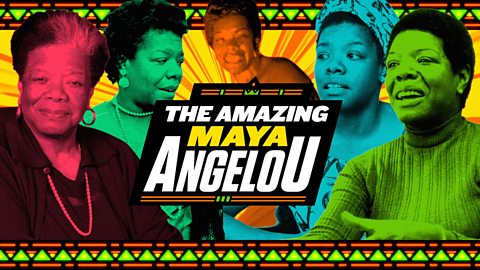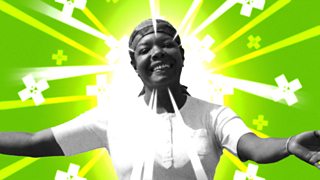The feminist company that changed publishing forever
A ‘virago’, according to the Cambridge Dictionary, is: “a violent, unpleasant woman who is often angry.” Yet in a different school of thought, it can also be translated as “a female warrior.” In 1973, it became the name of a pioneering feminist publishing company, Virago Press, who championed female authors and brought back lost literary works. In The Reunion, Kirsty Wark brings together the publisher’s founding members and employees from its early days. Here’s what it took to build and grow Virago.

Virago: the early days
The early 1970s were a progressive time for women’s liberation, though misogyny was still rife. In 1970, feminist protesters stormed the stage of the Miss World competition, with cries of “we’re not beautiful, we’re not ugly, we’re angry.” In that same year, the Equal Pay Act was introduced, and while publishing as an industry was largely staffed by women, its most senior figures were predominantly men. Ursula Owen came to Virago in its nascent days, after freelancing for Carmen Callil, with whom she became one of the founding members. Lennie Goodings – who had arrived in the UK from Canada with a suitcase and plans to stay for a year – joined the ranks soon after. Though the company had firmly capitalist roots and was not, as she had first thought, a cooperative, Lennie was intrigued, and she wrote home to say that she would stay a while longer. She is now the company’s chair.
As well as Margaret Atwood, writers including Amrit Wilson, Sarah Waters, Angela Carter and Maya Angelou have all been part of the Virago family.
Fenwomen, an oral history of women in East Anglia, was the first book to be published by Virago. Its author, Mary Chamberlain recalls that, “it was intended as a feminist antidote to a very successful book written by Ronald Blythe some years earlier.” Unsurprisingly, perhaps, her efforts were undermined when a tabloid newspaper dedicated a double-page centre spread to the book, suggesting it sold the villagers’ love secrets. Fenwomen did nothing of the sort. Virago had a list of 12 books in its first year, and at the company’s inaugural press conference, a journalist questioned whether they would be able to find enough books from female authors to publish the following year. The journalist needn’t have worried.
Resurfacing lost and overlooked books
Towards the end of the decade, Carmen decided to republish titles by female authors which had been lost or unjustly overlooked. She wanted to rethink the canon of classic literature, and marketed them with sleek uniformity: a striking green spine which defied the ‘pink for girls’ stereotype. Margaret Atwood’s second novel, Surfacing, was republished under the banner of Virago Modern Classics, and from then on her relationship with the publisher was cemented. For Canadian Lennie, who had studied the author’s work at school, working as the publicist for the “Queen of Canada” was incredible. Though underrepresented writers were finally being given a platform, they did not all receive an audience. Alexandra Pringle, who became editorial director of Virago, reflects on the renaissance such writers are now having. She says: “It did tend to be the more middle class [authors] that really got the popular imagination… I remember publishing the Harlem Renaissance writers and there was really no interest at that time, and they are being discovered now. It’s taken many many decades.”

The Amazing Maya Angelou
Joyous and haunting, mysterious and memorable - her life story is incredible.

The Virago family
The work environment at Virago has been compared to that of a family, and this extended beyond its employees to the writers. As Alexandra explains: “You’re not taking on a book, you’re taking on a writer, a person, a career, and that intimate and powerful connection, if you’re lucky, can go on for many decades.” As well as Margaret Atwood, writers including Amrit Wilson, Sarah Waters, Angela Carter and Maya Angelou have all been part of the Virago family.
Maya Angelou had a profound impact on the team she referred to as her “English publishers.” On this side of the Atlantic, publishers had been reluctant to work with her, explains Ursula, as they thought there would be no interest in the experiences of a black woman who grew up in Arkansas. Yet, after meeting with the author’s American publisher, Ursula brought Maya Angelou into the Virago family, starting with a tentative print run of 6000 books. They sold out within a fortnight. Alexandra remembers the team’s first encounter with the author: “We were utterly utterly transfixed by her, and fell in love.” Lennie has similarly fond memories: “She always said, ‘I’ve got your back’. And once we gave to her, she gave back to us. It was almost like bringing water to a dry land.” The giving back went beyond her literary output: “She used to cook for us all. She would make goat stew.” Remembers Ruth Petrie. “She would drink her bottle of whisky while we were knocking back her goat stew. And then dancing: she really liked a good time, and she gave us all a fantastically good time.”
-
![]()
The Reunion: Virago Press
Kirsty Wark reunites those involved in the early years of feminist publisher Virago.

Bibliotherapy: the power books have to heal you
GPs can offer patients a prescription of books as a remedy to ills.
The future of publishing
Though times have changed since Virago’s fledgling days in the 70s, its aims are still relevant today. Lennie describes how at the publishing company they publish from the margins and bring titles to the centre. “Feminism changes.” She says. “This new generation has changed again too, and what I love about this new generation is its fearlessness and its sense of entitlement, and its sense that things have gone on long enough.”
Hear more about Virago Press in The Reunion.
-
![]()
The Reunion: Virago Press
Kirsty Wark reunites those involved in the early years of feminist publisher Virago.
-
![]()
The ten books we rarely get around to reading
Some of literature’s greatest gargantuan novels that we should all add to our list.
-
![]()
Eight audiobooks to tantalise your ears
Enliven your day with one of a series of amazing audiobooks.
-
![]()
10 incredible Maya Angelou quotes to live your life by
Astonishing words from one of the 20th Century's most iconic writers, poets and activists.




